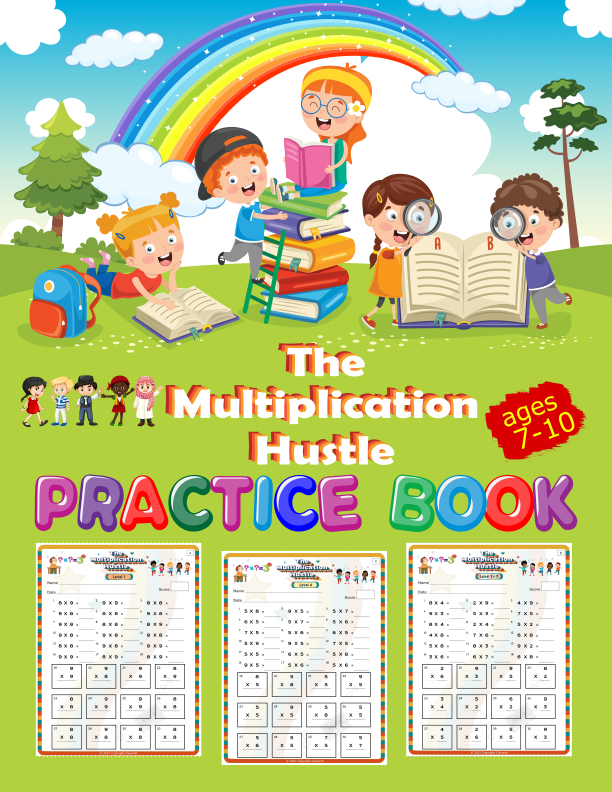Introduction
There’s no denying that math skills have declined in recent years. Just look at the lower scores on standardized tests and the difficulty many people have with managing their finances. But why? One theory is that our reliance on technology has made us soft. We’re used to having calculators and computers to do the work for us, so we don’t see the need to learn how to do it ourselves. While there may be some truth to this, it doesn’t explain the whole story. After all, previous generations were also raised with technology. So, what’s the real reason behind the decline in math skills?
The Importance of Practical Math Skills
It is widely accepted that the math skills of previous generations were far superior to those of today. This is often attributed to the fact that they grew up in a time when such skills were more necessary for everyday life. In an era where technology has drastically changed the way we live, it is easy to see how this could be true.
For example, while today we can rely on calculators and computers to do our math for us, previous generations had to do everything by hand. This meant that they were constantly doing mental calculations, whether they were adding up a grocery bill or working out how much change they should receive. As a result, their brains were constantly sharpened and they became adept at quickly solving problems.
In addition, people in previous generations often had to work with their hands more than we do today. This meant that they were constantly dealing with measurements and weights, which helped them to develop a strong sense of spatial awareness. Today, many of us are not required to engage in such activities on a daily basis, meaning that our practical math skills have deteriorated as a result.
It is clear then that there are many reasons why previous generations were better at practical math skills than we are today. However, it is also important to note that these skills are still just as important in our modern world. Even though we may not use them as frequently, being able to quickly solve problems and understand measurements is still a valuable asset in many situations.

Past Generations and Their Math Skills
In the past, people were better at practical math skills for a few reasons. First, they had to be. There were no calculators or computers to do the work for them. Second, math was taught differently in school. Students were required to memorize facts and formulas and learn how to do calculations by hand. Third, people used math more in their everyday lives. They didn’t have GPS or online maps, so they had to know how to read a paper map and use a compass. They also had to be able to calculate things like distance and time when traveling. Finally, people in the past just had a better understanding of math in general. They didn’t have all the distractions that we have today, so they could focus on learning and mastering math concepts.

Why Are Today’s Generations Falling Behind in Math Skills?
The simple answer is that they weren’t. Today’s generations are no worse at math than previous generations. The main difference is that previous generations were taught practical math skills while today’s students are mostly taught theoretical math.
Practical math skills are those used in everyday life, such as adding, subtracting, multiplying, and dividing. These skills are essential for managing finances, cooking, and many other activities. Theoretical math is the kind of math taught in school, such as algebra and calculus. It’s important for science and engineering, but not so much for everyday life.
The shift from practical to theoretical math began in the early 1800s with the development of calculus by mathematicians like Isaac Newton and Gottfried Leibniz. Since then, the focus of math education has been on teaching theoretical concepts rather than practical skills.
This isn’t necessarily a bad thing. Theoretical math is more challenging and can be more interesting than practical math. However, it’s important for students to learn both types of math. Unfortunately, many students never get the opportunity to learn practical math skills because they don’t use them often in their daily lives as well as memorization and drill practice is not used as much in schools.
The Benefits of Math Skills
It is often said that previous generations were better at math than today’s generation. There are a number of reasons for this belief, but one of the most commonly cited is that past generations had to use math in their everyday lives, while today’s generation does not. This may be true, but it doesn’t tell the whole story.
While it is true that previous generations used math more in their everyday lives, this only explains part of the difference in math ability between generations. The other part of the story is that previous generations simply had better math skills. Part of this was due to the fact that they started learning math at an earlier age. But even taking into account this difference, it is still clear that past generations were better at practical math skills.
So why were past generations better at practical math skills? There are a number of possible explanations:
- They had more opportunities to use math in their everyday lives.
- They started learning math at an earlier age.
- They were simply better at math.
- They were taught using different methods than today’s generation.
- The curriculum was different than it is today.

How to Improve Practical Math Skills in Today’s Generations
It is no secret that many young people today struggle with basic math skills. While this is often chalked up to “kids these days” not being as smart as they used to be, the real reason is likely more complicated than that. In fact, there are a number of factors that have contributed to the decline in practical math skills among today’s generations.
One reason for this decline is the increased reliance on technology. With calculators and other computers doing the heavy lifting for us, we simply don’t need to know how to do certain calculations by hand anymore. As a result, we don’t practice these skills as much and they become rusty over time.
Another reason is the way math is taught in schools. Many students are never exposed to practical applications of math concepts, so they never learn how to use them in the real world. This can make it difficult for them to see the value in learning math at all.
So what can be done to improve practical math skills in today’s generations? For one, we need to make sure that students are getting enough exposure to practical applications of math concepts. This can be done through incorporating more real-world problems into lesson plans and giving students opportunities to use math in their everyday lives outside of school.
It is also important to consider what helped developed better math skills in the past like flash cards and drills. There are a number of online programs to assist with this like the Multiplication Hustle which takes the old age approach to memorization and puts a fun and engaging spin to help students learn their multiplication facts.
We also need to do a better job of teaching kids why math matters. Too often, students are simply told that they need to learn math because it’s important but they’re never given a good explanation of
Conclusion
Past generations were better at practical math skills because they were required to use them on a daily basis. With the advent of technology, many of the tasks that require math skills have been replaced by machines or apps. As a result, people today are less likely to use math in their everyday lives. This lack of practice can lead to a decline in math skills over time. However, there are a number of options out there that incorporate the old and the new to help foster more comprehensive outcomes in student math performance.


